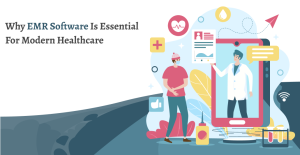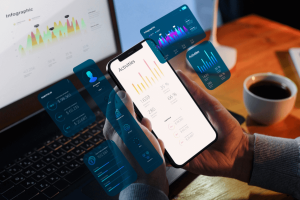The Role of Big Data in the Healthcare Industry

Big data, together with its myriad benefits in various industries, is all the rage these days. From banking and finance to aviation, big data has changed and improved how these industries deliver services and conduct business overall.
Another huge beneficiary of big data is the healthcare industry, especially as practitioners strive to provide more efficient and affordable services. Moreover, with the wide variety and significant volume of data being generated every single day, it is evident how the industry can benefit from database integration and replication solutions, data management software, and other related technologies to organize the data and derive valuable information from it.
But is big data really all that important when the industry has already survived for so long without it? What roles does big data actually play in the big picture of healthcare? Here are some examples.
Improved Application of Personalized Medicine
The concept of personalized medicine or precision medicine is deceptively simple: doctors make decisions and recommend medications or medical procedures that is tailor-fit to individual patients’ needs based on disease risk assessments, genomic structures, medical history, and other factors. This makes personalized medicine valuable in diagnosis, intervention, and drug development, among others. However, it’s not as easy as it sounds because this wealth of information can be difficult to access and manage if you don’t have the right infrastructure.
With the help of big data and the necessary allied technologies (e.g., data integration, AI solutions), it is easier for medical professionals to apply for personalized medicine safely and efficiently. Because the information they are accessing is organized and easily analyzed, the risks of misdiagnosis, wrong medications or dosages, and other negative scenarios or results are significantly reduced.
Driving Patient Engagement
More often than not, people don’t go to their doctors unless they are already sick or feel that something is wrong. Regular check-ups are simply not viable or appealing because it takes time out of an already busy schedule and, of course, costs money. This presents a huge concern for medical professionals because early detection of diseases can lead to better chances of survival and also lower treatment costs.
Big data can help healthcare organizations cultivate better relationships and create customized messages that would help drive patient engagement. With a complete picture of each patient, medical practitioners will know when, where, and how to engage with patients and deliver experiences that will meet the patient’s expectations and match their level of health literacy.
For example, big data analysis can help weed out the reasons behind drug non-compliance, like lack of knowledge or a complex schedule or dosing, and patients can be grouped based on these reasons. Healthcare specialists can then work together to develop solutions that would address the issue. These could be in the form of patient education, revised and simpler medication regimens, or even simple reminder aids like alarms or watches.
Reduction of Costs
One of the biggest concerns in healthcare is cost. This is not only in terms of expensive medications and procedures but also in resource wastage. From something as simple as storing physical forms to something as expensive as ordering an unnecessary procedure because of misdiagnosis, resource wastage affects both the patient and the doctor.
Big data analysis can help with the reduction of costs in many facets of healthcare. Record keeping will not only require so much less space, but will also become more efficient. Doctors will have easier access to relevant information about the patient, which will help them recommend the most effective and hopefully a more affordable course of treatment. Researchers will have access to both raw and analyzed data from previous and current studies, which is vital in the development and continuous improvements of medications and medical procedures.
These are just among the few important roles that big data and allied technologies can play in the healthcare industry. All of these combine to achieve the end goal of all healthcare providers: enhanced engagement, which will lead to greater patient satisfaction and improved quality of life.






